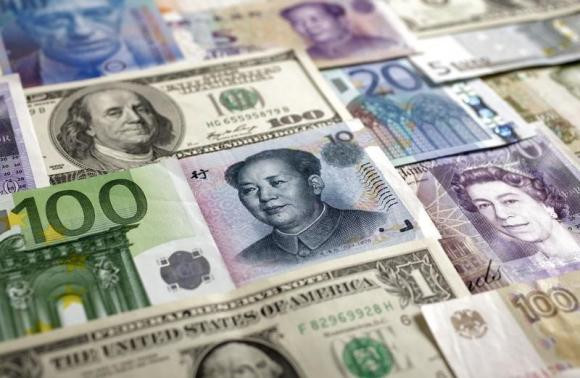Central banks watch: ECB, BoC, Indonesia, Poland to set rates, BoJ minutes, Kuroda, Draghi in focus

The European Central Bank (ECB) and the Bank of Canada (BoC) from the G10 world, and Indonesia, Poland and Namibia from the emerging markets, are scheduled to set rates next week, while the Bank of Japan (BoJ) will release the minutes of its last meeting.
Several Fed officials are scheduled to speak at various events in the coming week, and they will be keenly watched amid the ongoing speculation about the timing of the first FOMC rate hike since 2006.
The G20 meeting that commences on 16 April and the IMF meeting which begins the next day will be two major events crucial for global central banks, as uncertainty surrounding Greece's relation with the Eurozone authorities and the IMF remains a concern for markets.
Japan
The BoJ minutes of the 8 April meeting will be watched for more clues regarding the likelihood of additional stimuli by Japan's central bank, as its 2% inflation target for next 2016 is under threat with crude prices at very low levels.
A senior BoJ official has denied there would be a need to bring more stimuli as the underlying trends are in line with its long-term inflation plans.
The BoJ Deputy Governor Hiroshi Nakaso warned against market expectations that the bank will expand its stimulus programme later this month in an interview given to Reuters on Thursday, saying a cut in its inflation forecast would not be enough to justify more monetary easing.
Nakaso said that while slumping oil costs have pushed inflation back to zero, rising wages and a steady economic recovery will underpin a long-term rise in prices. Governor Haruhiko Kuroda is scheduled to speak on Wednesday.
Governor Haruhiko Kuroda is scheduled to speak on Wednesday.
Canada
The BoC is likely to keep the benchmark interest rate on hold at 0.75% on Wednesday, as it may take longer to assess the result of the 25bp rate cut in January, which was a surprise for markets.
At the 4 March review, BoC left the rate steady saying financial conditions eased and the risks to the inflation outlook are now more balanced. On 20 March, data showed Canadian inflation rate stood at 1% in February, the 14-month low it hit in the previous month.
GDP and labour market data of late from Canada were slightly more hawkish than expected. The Canadian economy contracted only 0.1% in January while analysts had been expecting a 0.2% decline in the GDP, reversing the 0.3% growth recorded for December, data showed on 31 March.
As per the data on Friday, the net change in employment in March was an increase of 28,700, making a remarkable rebound from the 1,000 payroll cuts in February.
The consensus was for no change.
Eurozone
The ECB is also unlikely to alter rates at the review on Wednesday, but the statement and the subsequent press conference will be watched for more rate cues especially amid the ongoing Greek issue and weakening economic dynamics.
On the 5 March review, the ECB decided to keep the interest rate on the main refinancing operations and the interest rates on the marginal lending facility and the deposit facility unchanged at 0.05%, 0.30% and -0.20% respectively.
The Refi rate saw a 20 basis points reduction last year that took it down from 0.25% to 0.5% now. The ECB is mainly depending upon quantitative easing to stimulate and reflate the economy and the authorities have been reiterating its stance that its stands ready to act to further stimulate the region if need be.
Emerging markets
Indonesia and Poland are on a rate cutting cycle, while Nambia is on a tightening cycle. But all three are more likely to keep their rates steady at the review this month, as the latest rate changes have taken place relatively recently.
Indonesia had hiked the official discount rate by 25bp in November last year, but has reversed that in February. Last month, the Bank Indonesia left the rate steady saying the current policy stance is consistent with bringing inflation to target and controlling current account gap.
Poland started cutting rates late 2012 when the official discount rate was 4.75%. The National Bank of Poland lowered it to 2.5% by 2013, where it remained until the central bank cut it by 50bp in the second half of last year. Last month the NBP lowered it by another 50bp, taking the rate to 1.5%.
Namibia hiked the official repo rate by 25bp to 6.25% at its February review, adding to the 50bp increase in 2014. Inflation in the African country has eased to a 4-year low of 3.56% as of February, reducing the need for
Inflation in the African country has eased to a four-year low of 3.56% as of February, reducing the need for a further hike in interest rates.
Speakers
BoJ's Kuroda and ECB's Draghi will be the most important speakers of the upcoming week, but the Fed officials will also be in focus given that the market is in search of timing cues with regard to the US rate hike which has been pretty much priced in for the middle of this year or in the second half.
The Minneapolis Fed's Narayana Kocherlakota will speak on Tuesday and St. Louis Fed President James Bullard and Richmond Fed's Jeffrey Lacker on Wednesday.
Atlanta Fed President Dennis Lockhart, Cleveland Fed's Loretta Mester, Boston Fed's Eric Rosengren, and the Fed vice chairman Stanley Fischer will be speaking the next day.
© Copyright IBTimes 2025. All rights reserved.






















